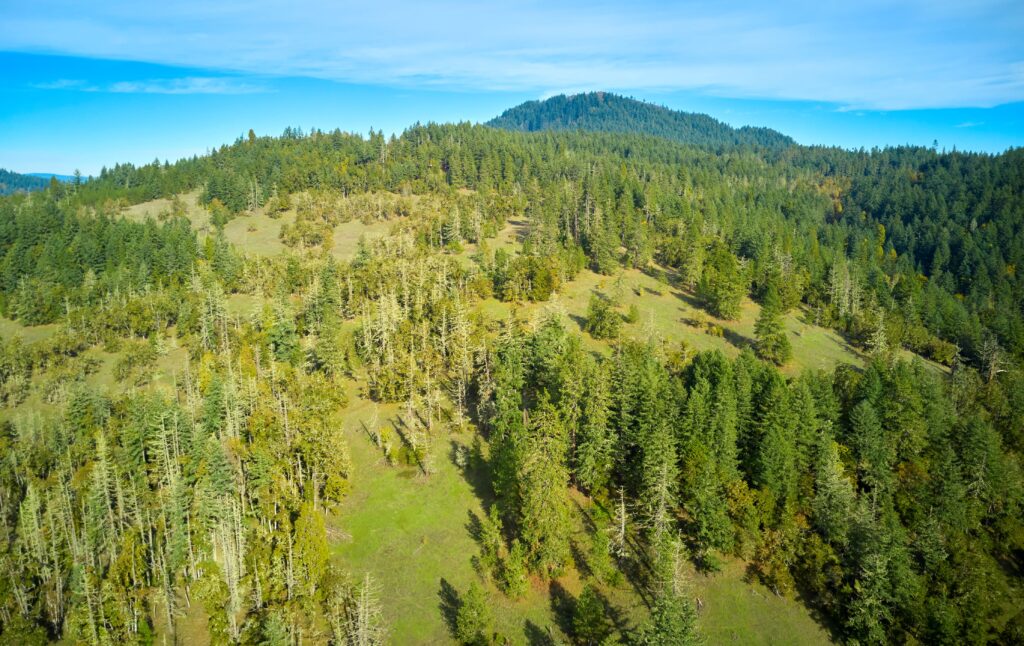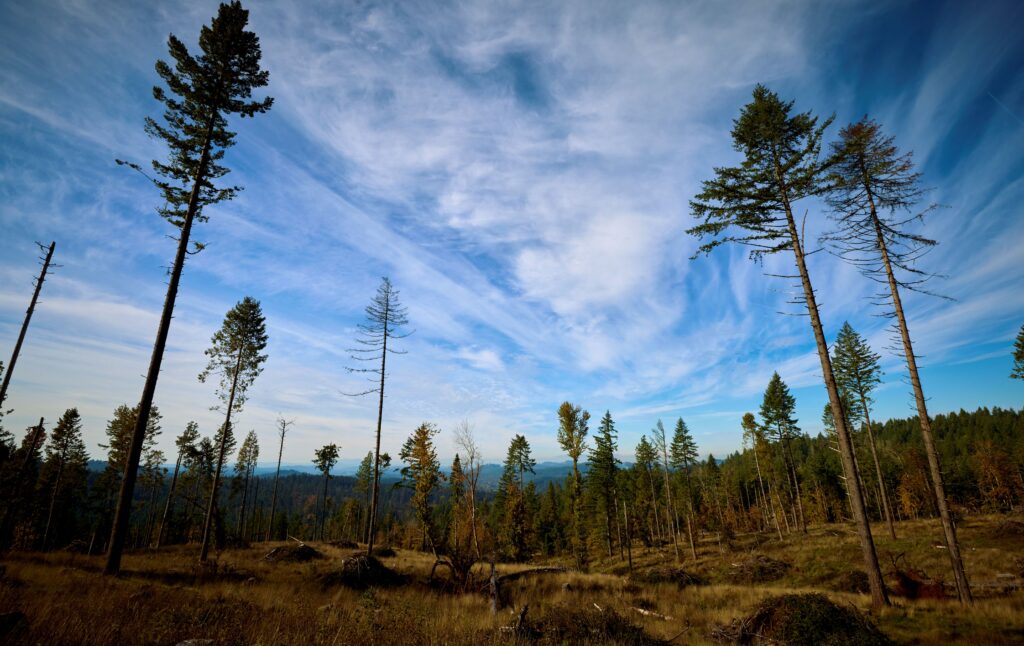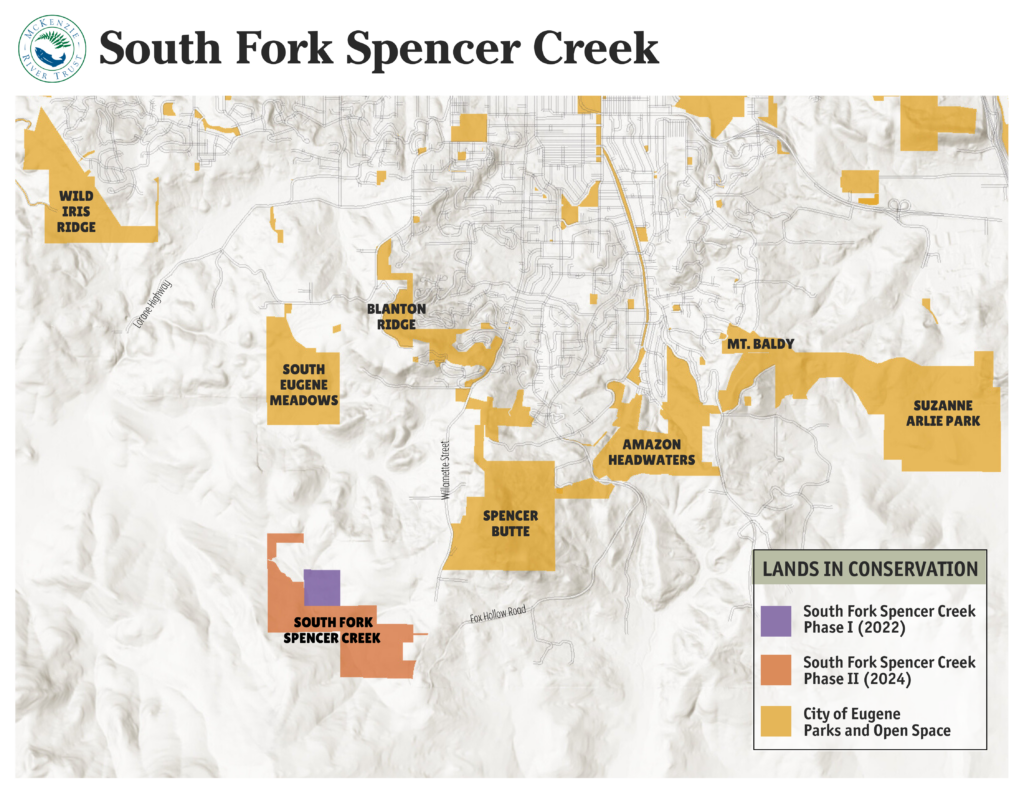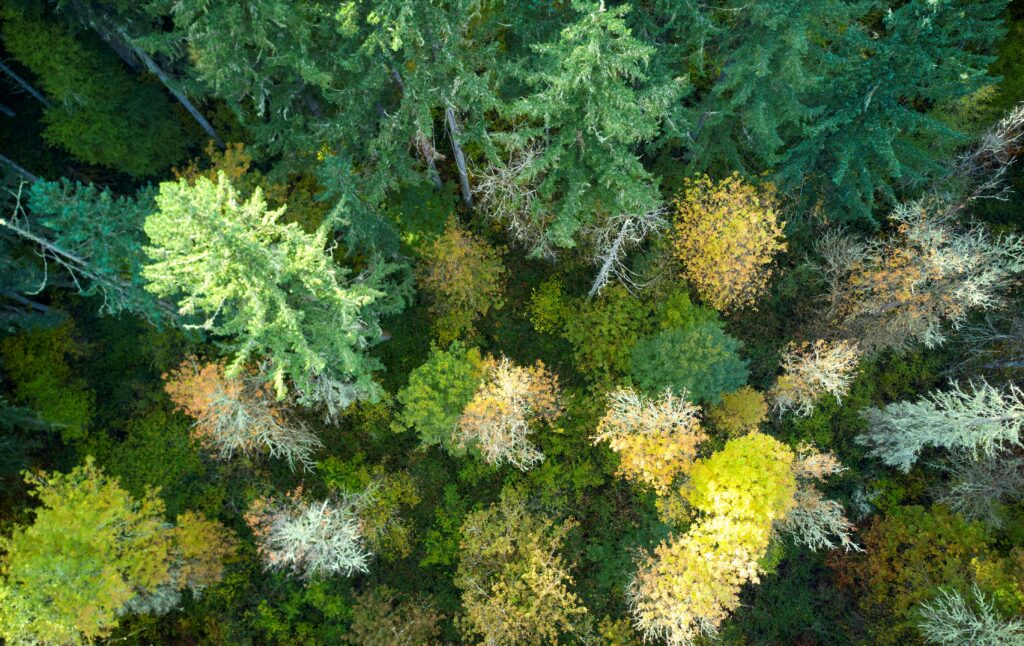
With the support of our members and years of commitment by staff, funders, and our partner landowner, McKenzie River Trust recently ensured the permanent protection of 243 acres of rare oak woodland and savanna habitat just outside Eugene, OR. The protection project builds on initial conservation efforts in 2022, which leveraged membership contributions to protect 40 acres of fish and wildlife habitat. Long identified by area partners as a potential habitat “anchor” site in the ridgeline area, the South Fork Spencer Creek conservation area builds on the City of Eugene’s open space protection efforts. Located near South Eugene Meadows and Spencer Butte Park, the property contributes to an important wildlife corridor between the City of Eugene parks in the Willamette and Fox Hollow areas.

Sam Hillmann, Land Protection Manager for McKenzie River Trust, shares “This area has long been of interest to Rivers to Ridges partners. The land has already benefited from restoration by the previous owner, who utilized government grant programs to improve habitat conditions on the site. On every visit I have made to the property, the forest has been alive with the sound of birdsong and ample signs of wildlife, including signs of the resident Black Bear who roams its hills and draws. Bringing the land into permanent conservation will help advance the recovery of oak savanna and prairie habitats that have been greatly reduced across the Willamette Valley.”

The area includes a range of niche habitat types, including oak woodland, savanna, and prairies, as well as mixed conifer and riparian forests. These areas support several Oregon Conservation Strategy Species, including pileated and acorn woodpeckers, Columbia whitetail deer, northern red-legged frogs, and western bluebirds.
Working through the Willamette Wildlife Mitigation Program, the Trust received $1.1 million in funding. This funding, along with a significant contribution from the previous landowner, made the transaction possible. Now, the trust is looking toward the future to expand habitat restoration across the site to increase regional climate resiliency and decrease wildfire risk in an area close to the urban core.

Land Steward Brent Ross, who has spent years working on fire-related projects with the Trust, is looking forward to working on the site. “Historically, the entire ridgeline around Eugene would have been dominated by oak and prairie habitat. Over the course of a few centuries, upland areas were mostly converted to Douglas fir plantations. As annual temperatures continue to rise and precipitation decreases, these trees aren’t able to thrive the way they used to. Re-establishing an oak-dominant landscape will not only provide important habitat for several sensitive species, but will also contribute to regional wildfire resiliency as the trees and plants found in these systems are much more adapted to heat, drought, and fire.” The Trust plans to implement fuels reduction projects similar to those completed in the Coburg Hills, Thurston Hills, and Mount Pisgah areas. That work will include thinning out overstocked conifer forests, reducing understory brush, and potentially implementing ecological fire projects with the Rivers to Ridges partners. Ross adds, “The beauty of projects like these is that what is good for reducing the risk of wildfire for human communities is also what is good for the native plants and animals who call these areas home.”
Property photos courtesy of Steve Smith Photography. Acorn Woodpecker courtesy of Cary Kerst.
